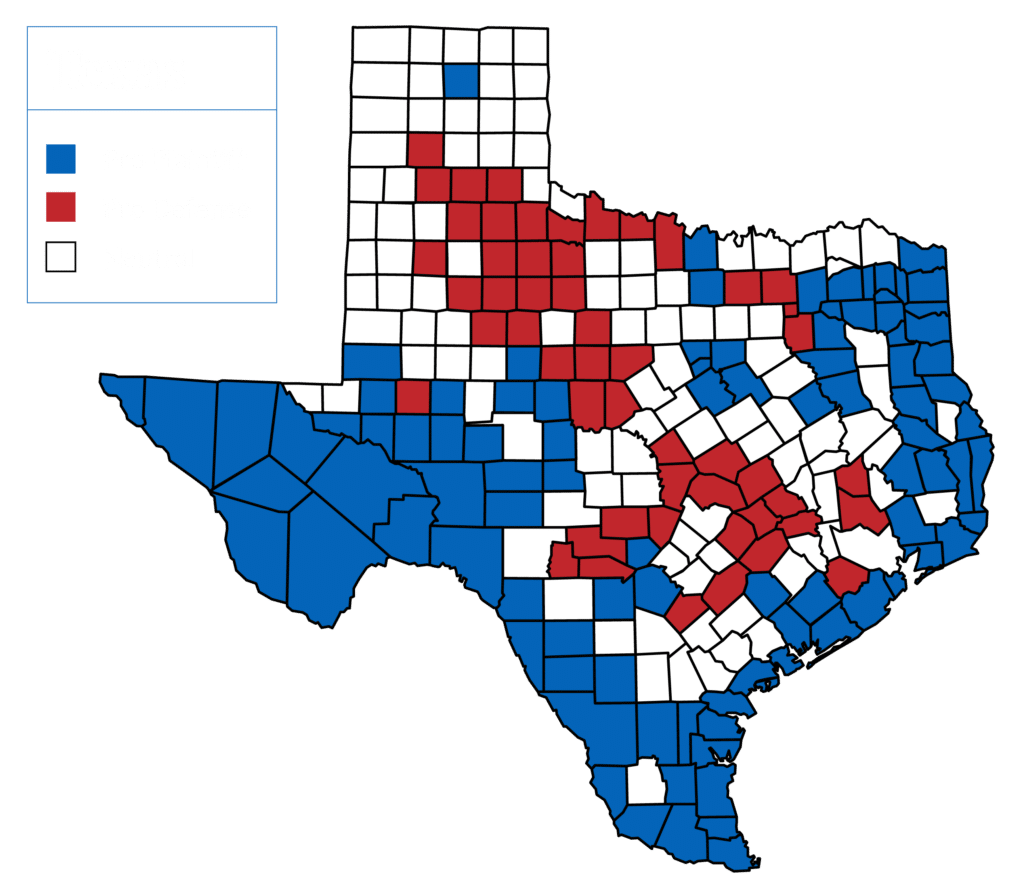At Shamieh Law, our Dallas personal injury lawyers can help you and your family seek fair compensation, accountability, and justice, whether you’ve been injured in a car accident or by a defective product. Call us today at (469) 813-7332 to schedule your free case review with a member of our legal team.
Why Choose Our Dallas Personal Injury Lawyers to Represent You
Our firm is honored to provide expert legal service to every client who walks through our doors. When you work with our injury firm, you’ll get:
- A team with over three decades of experience representing injury victims in Dallas.
- A firm that has recovered over $100,000,000 in settlements for accident and injury victims just like you.
- Award-winning attorneys recognized by Super Lawyers, Texas Lawyers, The National Trial Lawyers Top 100, and many more.
- Dallas locals that are passionate about giving back to the community and protecting our neighbors who live within it.
Winning Life-Changing Settlements for Injury Victims
We have recovered millions on behalf of our deserving clients in Dallas, and now we’re here to do the same for you. Below are just a few examples of the settlements and verdicts our attorneys have achieved:
- $9.5 million for a worker that fell to their death due to lack of training and safety equipment
- $8 million for the victim of sexual assault and hazing that a university tried to cover up
- $5 million for the family of a dollar store employee who was murdered in a robbery after he made requests for more security.
- $1.6 million for a victim of a multi-vehicle T-bone accident involving an 18-wheeler that resulted in injuries requiring a laminotomy and discectomy.
- $1.325 million for a victim of an 18-wheeler multi-vehicle wreck caused by a failure to yield the right of way, resulting in a traumatic brain injury.
- $1.056 million for a client who suffered lung damage and scarring after a Honda/Takata airbag explosion launched shrapnel in their direction.
- $1 million for property damage and injuries to multiple clients when a crane collapsed during a storm.
- $900,000 for a victim of a slip-and-fall at a beauty store that caused back injuries requiring a lumbar fusion and a spinal cord stimulator.
- $800,000 for injuries sustained by multiple workers, including compound fractures, a broken femur, and broken ribs, when a home collapsed in a windstorm while under construction due to improper building methods.
- $525,000 for a victim of a slip-and-fall accident in a hotel that caused injuries requiring cervical fusion.
- $500,000 for a victim of a head-on collision caused by a minor who drove their parents’ car the wrong way down the street.
- $450,000 for the victims of a three-vehicle collision caused by a drunk driver that resulted in lumbar injuries requiring a possible L4-5 discectomy.
- $375,000 for a client who suffered a traumatic brain injury after a stilt walker at a circus fell on them.
Our Dallas Office Location
Hi everybody, my name is Ramez Shamieh and I’m the owner of Shamieh Law. Dallas is literally as you can see in our backyard. Today I’m going to give you directions on how to get to our office. The first way is by interstate 75 and you would exit the hall lemon exit. The second way to get to our office is through Woodall Rogers exiting Pearl. We are located in the State Thomas Historic District in Uptown.
You Pay Nothing Unless We Win Your Case
At Shamieh Law, we are proud to use a contingency fee model to assist our clients with the complex undertaking of personal injury cases. In Texas, a contingency fee is an agreement between the lawyer and the client in which the attorney does not collect a fee unless they win or settle the case.
The fee is typically calculated as a percentage of the granted compensation. This arrangement allows clients with limited financial resources to access legal representation without paying out-of-pocket fees. So, you owe us nothing unless we win.
How Long Do You Have to File a Personal Injury Lawsuit in Dallas?
The statute of limitations for personal injury cases in Texas is two years. This means you have two years from the date of your accident to file your injury lawsuit, or you may miss your opportunity to file a lawsuit and recover damages. It is important to contact our team as soon as possible to ensure you protect your rights.
Types of Personal Injury Cases We Handle
We firmly believe that no personal injury case is the same as another. That’s why we don’t use a one-size-fits-all formula. Our experienced legal team in Dallas, Texas, will take the time to develop an in-depth understanding of your case and craft a personalized legal strategy tailored to your situation and goals.
We have the skills, expertise, and resources needed to handle a wide range of case types, including:
What Damages Could You Be Entitled to in Your Dallas Personal Injury Claim?
At Shamieh Law, we’re dedicated to helping injury victims like you find a sense of justice and accountability through a compensation claim. We’re also committed to fighting to help you get the compensation you need after an accident turns your life upside down.
There are many different types of compensation available in a personal injury claim. Here are some of the damages our Dallas personal injury attorneys have helped recover for our clients:
- Medical expenses – You may be reimbursed for all past and future medical bills related to your injury, including those for hospital stays, surgeries, appointments, prescription medications, and rehabilitation.
- Lost wages – If your injury has caused you to miss work or has affected your earning capacity, you can seek compensation for the past and future income you’ve lost.
- Other out-of-pocket expenses – This can include the cost of transportation to medical appointments, mobility devices, home modifications, and any other expenses stemming from your injury.
- Pain and suffering – You may be entitled to compensation for the physical and emotional pain and suffering caused by your accident. Though they can be difficult to calculate due to their subjective nature, these “noneconomic” damages can be just as important as, if not more so, the more tangible aspects of your loss.
- Loss of enjoyment of life – This accounts for the impact your injuries have on your ability to enjoy your day-to-day activities like before your injuries.
In some cases, exemplary damages may also be awarded in addition to compensatory damages. Also known as punitive damages, exemplary damages are meant to punish liable parties for particularly egregious or reckless behavior. Though relatively rare, exemplary damages can add significant value to your claim.
Texas Negligence Laws That Can Impact Your Dallas Injury Case
1. When the at-fault party is negligent
Most Dallas personal injury cases are based on the legal concept of negligence. In negligence cases, you will need to show evidence to prove the at-fault party caused your damages by failing to take reasonable care to avoid harming others through their actions. Our Dallas personal injury lawyers start your case with a thorough, independent investigation of your accident to gather as much evidence as possible.
2. When you’re partly at fault
Sometimes, clients also wonder whether they can recover compensation if they were partly responsible for their accident. Fortunately, Texas courts use a modified comparative negligence system when evaluating liability. This system allows you to recover compensation as long as you are not found to be 50 percent or more responsible. However, your compensation will be reduced proportionately to your degree of fault.
Will Your Personal Injury Case Go to Trial?
Our team of experienced injury attorneys in Dallas strives to resolve our client’s cases without going to trial. We usually achieve this goal through skillful out-of-court negotiations with at-fault parties and their insurers.
However, if a fair settlement cannot be reached through negotiation, your case may need to be argued in court. Whether we take your case to trial will ultimately depend on the strength of your claim, the other side’s willingness to negotiate, the monetary stakes involved, and your own wishes. As your case unfolds, our team will advise you on the best course of action and work to achieve the most favorable outcome.
Which Texas County is Most Favorable to File a Lawsuit in?
If your case does go to trial, the county where your injury lawsuit takes place can have an impact on your case outcome. Different counties in Texas are known to favor the plantiff, favor the defense, or take a neutral stance. It is important to consider historically how counties have handle cases when filing a personal injury lawsuit in Dallas. Our attorneys can help strategize the best approach.

Get a Free Consultation with a Dallas Personal Injury Lawyer at Shamieh Law
If you were involved in an accident, We’re standing by to help you handle the legal aspect of your recovery. Our award-winning legal team has wide-ranging experience helping accident victims in Dallas and throughout Texas secure compensation when injured at little to no fault of their own. Let us put our skills and expertise to work for you.
Schedule a free initial consultation with a Dallas personal injury lawyer today by completing our online form or calling (469) 813-7332. We work on a contingency basis, which means you pay nothing unless we win your case.
- Dallas Car Accidents
- Dallas Truck Accidents
- Dallas Motorcycle Accidents
- Dallas Pedestrian Accidents
- Dallas Bus Accidents
- Dallas Train Accidents
- Dallas Slip and Fall Accidents
- Dallas Dog Bite Lawyer
- Dallas Workplace Accidents
- Dallas Construction Accidents
- Dallas Industrial Accidents
- Dallas Product Liability
- Dallas Wrongful Death Accidents






